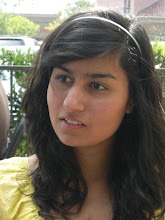
Gafoor in 1972
The ‘70s in England was a time of mod revival, swingers and passionate protest. My father, Gafoor Jaffer, was right in the center of the peace signs and government rebellion—an ultra-hip Beatles fan and handsome youngster combined, popular among his friends, and quite popular among the ladies. In a word, my dad was groovy. In 1977, he worked as the head of the Presentation-Slides Department in a London photography company. Gafoor often clashed with the office runner, a young British courier at the cheeky age of 15. This boy often addressed the employees of the office with pathetic attempts at condescension while experimenting with the latest trends in speech. Eventually the boy had grown tired of shooting the insult of ‘fruit’ after a male worker in the office muttered in response, “If I were a homosexual, you’d better keep your pants on,” and abandoned the use of ‘chump’ for similar reasons. The runner’s favorite nickname for Gafoor was ‘jaffa,’ a jibe scorning his last name Jaffer, insinuating that my dad was sterile and unmanly. The professionals in the office, including Gafoor, regarded the runner as young, foolish and subordinate, and overlooked his defiance with a casual shake of their heads.
One morning, my father sauntered into the office as usual and took a seat at his mahogany desk, his bell-bottom pants swishing at his ankles. While he made phone calls to clients and transformed negative film to slides, the runner handed out mail and filled the boss’s coffee mug. The runner flung some envelopes to Gafoor with a sneer and a cheery, “Morning, Paki!”
Gafoor paused, his thumb in the nook of the envelope he was opening and slowly looked up at the runner as he said sternly, “Don’t call me a Paki.”
The boy made a face and continued to distribute the mail. Several hours later, the runner completed his duties and sat impatiently on his shaky stool behind a worn table. That day, the company had received a large order of film development. As Gafoor returned from the dark room and sat down at his desk, the young boy chided, “How’s it hangin’, ya Paki?”
My dad slightly shifted his stylish aviator sunglasses down his nose as he tilted his head forward and replied in his Oxford English accent, “Call me a Paki one more time and I’ll take care of you. Understand?”
The messenger dismissed Gafoor’s threat as a weak sense of humor. Later that day, the runner went around the office, taking note of sandwich orders for lunch. He finally came to Gafoor’s desk, who requested no ham because his religion prohibits the consumption of pork. “No hammy for the Paki?”
The boy, in fact, did not understand. And so, my father lifted the boy onto his shoulder and dumped him into the nearest trashcan. The runner continued to curse him in all the sorry British slang he knew, and the words repelled off of Gafoor as easily as if they were raindrops on a windshield. Gafoor rolled the dustbin out of the office and into the crowd of the outdoor courtyard, dusted off his hands, and went back to work.
Incidentally, my father is not Pakistani. He was raised in East Africa, and his roots lay in India. The slur of ‘Paki’ is insulting to a Pakistani, carrying the weight of unprovoked societal prejudice and a history of imperial dominance. It is even more offensive to one who is not a Pakistani. The term dates back to the colonization of Pakistan, in which the British officials would refer to South Asians collectively as ‘Pakis’ in a derogatory manner, emphasizing their inferiority and subjugation. In Britain during the ‘70s, Indians, Pakistanis and Bangladeshis were all labeled as ‘Paki’ or ‘Wog.’
Originally when my father told me this mischievous story, my sisters and I were giggly and deeply impressed. At the time, I saw my dad as a light-hearted comic, refusing to be offended by petty insults. However, how did my father really feel? When racially scrutinized and mocked, his instant reaction was to counter his humiliation onto his aggressor, the poor messenger boy. And yet the bitter discomfort of race differences still lingers on our tongues. Probing my father for his true sentiment towards the slur yielded only the conventional excuse: it was all in good fun. Digging deeper revealed that my father did not know how to handle the racist remark and to this day regrets that he did not sit down with Doug and explain to him the impact of his words, so that he could prevent the possibility of such an offense to another. At the very least, despite its pertinence to the situation, the lessons of that day have dissuaded my father from ever, even in retaliation, using the hip and modern slang term: white trash.
